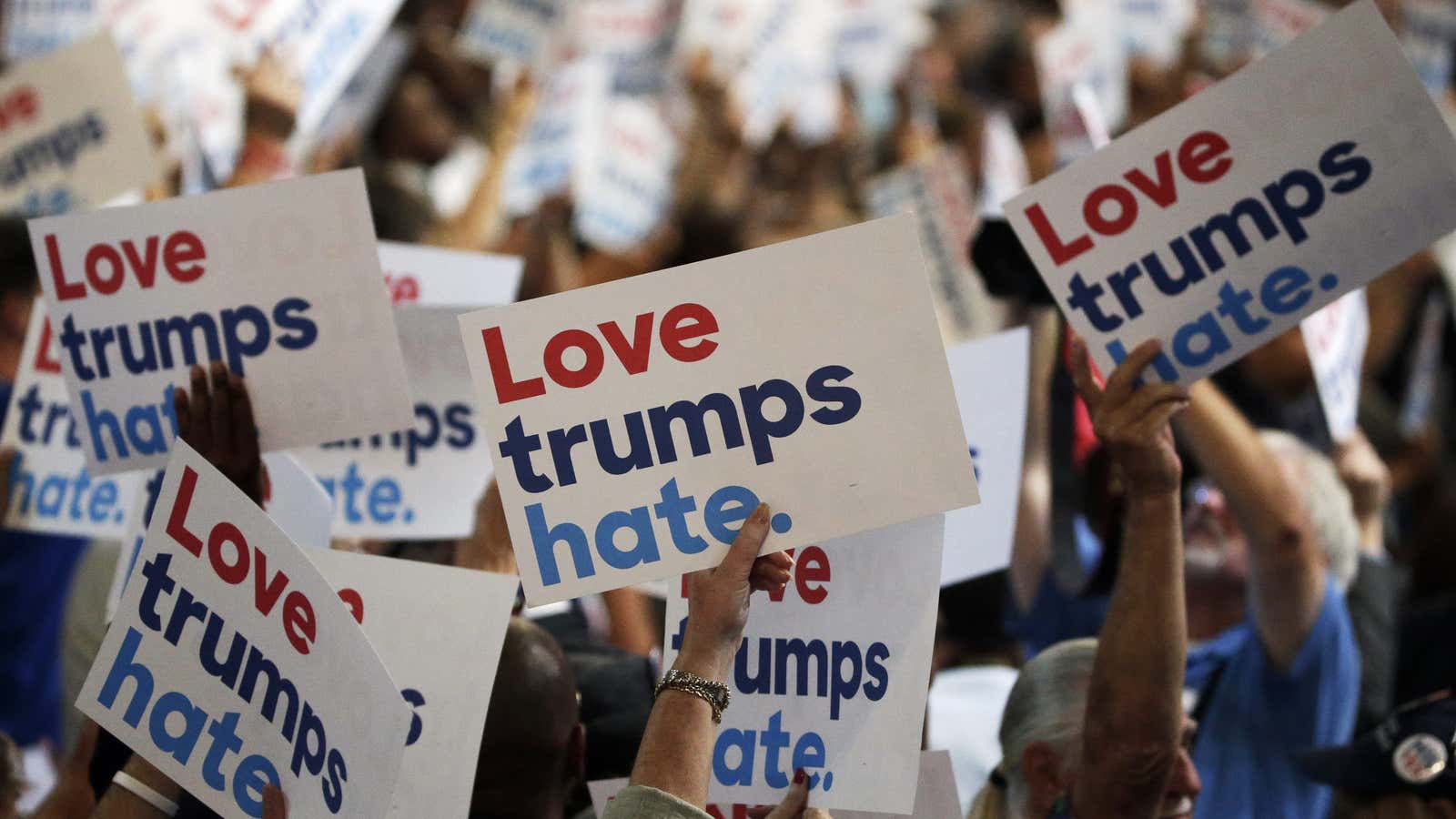

The protests slated for this inauguration weekend—many of which have already begun —are expected to attract record-breaking crowds. Millions of people in the US will be joining assemblies today and tomorrow, whether wearing a handmade candy pink pussyhat in tomorrow’s Women’s March, or a rush-ordered “Latina For Trump” t-shirt in support of the new president.
For those who may be preparing for their first political demonstration in a long time—or, maybe, ever—we offer this quick review of the types of behavior that are acceptable under the law, according to the American Civil Liberties Union (ACLU.)
AdvertisementIf you’ll be standing or walking in solidarity at a large, pre-planned event, your organizer has probably already obtained any permits necessary to take a sizable protest into a street, public park, or front of a federal building or plaza. Know that you also have the right to gather in public forums without a permit in response to a news event, and you can demonstrate on a public sidewalk, permit or not, at any time, according to the ACLU.
You’ll need a permit for a large gathering that requires sound amplification, and the police have the right to limit the volume of amplified sound if they believe it’s impeding their ability to keep everyone safe or control traffic.
The owners of private property have the right to decide whether a protest is permitted on their grounds, however. If you’re asked to take your protest somewhere off a piece of private property and refuse, you can be arrested for trespassing.
It may be obvious, but the First Amendment covers all forms of speech, meaning you may rain on another group’s parade with your counter-messages, and you must tolerate their attempts to drown out your catchy slogans.
AdvertisementThat’s all fine as long as everyone keeps it civil. You may not, however, interfere with another protest. The police are allowed to separate opposing groups of protestors, but citizens protesting from opposite sides of an issue can remain in the same general area.
Yes, you may take a photo of the police, and federal buildings. The police would need a warrant to see or confiscate your images or video, and they are not allowed to delete images from your phone or camera. You can only be ordered to stop documenting an event if the police feel you are “truly interfering with legitimate law enforcement operations,” says the ACLU.
Note that you cannot take photos or videos on private property if the owner forbids it.
By all means, take your case to the sidewalk, but don’t annoy people by trying to slow foot traffic or standing in front of doorways. (Leave that job to lost tourists.) If you plan to create a sidewalk station that includes tables and chairs, get permission first.
AdvertisementIf you are stopped or questioned, the ACLU advises staying calm and complying with police requests. That said, as long as you’re not under arrest, you also have the right to peacefully leave a scene or situation (though the law regarding the requirement to produce identification varies somewhat depending on locality).
In general the ACLU recommends prioritizing your personal safety when dealing with the police, even when you believe officers’ behavior is questionable. “Remember: the street is not the place to challenge police misconduct. Don’t physically resist officers or threaten to file a complaint,” the civil rights group suggests. “As soon as you can, write down everything you remember, including officers’ badge and patrol car numbers, which agency the officers were from, and any other details.” Collect names and info from any witnesses and snap photos of any injuries, then bring all of that information to the agency’s internal review board, or a civil rights lawyer, or the ACLU, to file a complaint.
See the ACLU’s information-rich website for advice on what to do when you’re stopped by police or asked about your immigration status . It also offers tips on how to respond if you encounter anti-Muslim discrimination , among other scenarios.
A couple of final tips: If you’re planning to carry a sign at a large march, remember that sticks or any object that can be used as a weapon will not be allowed. (Sign posts should also be made of cardboard.) Quartz also has some recommendations regarding selfies, social media, and the police , and making protest messages memorable .
Our free, fast, and fun briefing on the global economy, delivered every weekday morning.